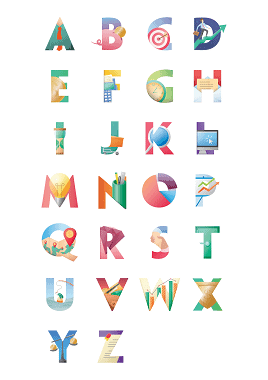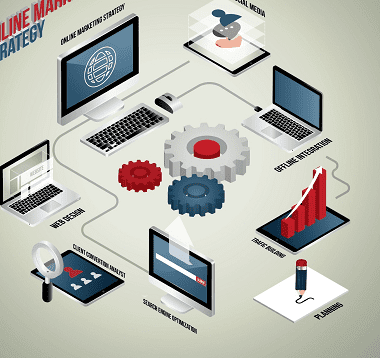This tutorial will give you 9 Key differences between Android phone, Windows phone, and iPhone.
Android, Windows, and the iPhone are the three main participants in the smartphone business. Choosing the best operating system can be challenging because each one has unique strengths and limitations. It can be difficult to compare the three because there are so many distinct models and features. Fortunately, we’ve put up the best comparison guide to aid with your decision-making. We can help you find the best camera, the most user-friendly interface, or the most cost-effective solution. Join us as we examine the advantages and disadvantages of each operating system in depth to assist you in selecting the one that is best for you.
There are numerous options on the market when it comes to selecting a smartphone. Android, iOS (the operating system used by iPhones), and Windows Phone are the top three smartphone operating systems. To assist you to select the best phone for your needs, we will compare Android phones, Windows phones, and iPhones on various criteria, including design, user interface, app selection, and more.
Android Phone

A mobile device that utilizes Google’s Android operating system is known as an Android phone. Because Android is an open-source operating system, manufacturers and developers can alter it to produce a distinctive user experience.
Android phones are well-liked for their adaptability, customization possibilities, and capacity to operate a variety of Google Play Store apps. They frequently have cameras, huge touchscreens, internet and email access, and other features like voice assistants, GPS navigation, and biometric security measures like fingerprint scanners or face recognition.
Android phones come in a range of sizes and price points to fit various demands and budgets and are made by several different manufacturers, including Samsung, Google, LG, Motorola, and others.
Windows Phone

A mobile device that utilizes Microsoft’s Windows operating system is known as a Windows Phone. Windows is not an open-source operating system, therefore manufacturers and developers are not as free to customize it as they are with Android.
The distinctive Live Tiles interface on Windows phones, which let users add interactive tiles to their home screen to display real-time information like weather updates, social media notifications, and news headlines, was very well-liked by customers.
There are no longer any new phones being created that run on Windows Phone since Microsoft declared in 2017 that it will stop supporting the platform. Because of this, the Windows Phone market has practically vanished, and owners of Windows phones may now have trouble downloading updates or finding apps that work with their devices.
- Related: How to Recover Lost Files after Deep Freeze on Windows
- How to run Windows 11 on an unsupported PC – 4 Stunning ways
iPhone

Apple Inc. creates and markets the iPhone, a mobile smartphone. It utilizes the iOS operating system, which is only available on Apple devices.
iPhones are renowned for their modern designs, excellent cameras, and simple user interfaces. Large, high-resolution touchscreens are generally included, and they may be used to access the internet, send messages, make calls, and run a variety of programs from the App Store.
Every year, Apple launches new iterations of the iPhone, often with upgraded hardware features like faster CPUs, longer-lasting batteries, and better camera systems. Together with regular software updates that fix security flaws, iPhones are renowned for their robust security measures, including Touch ID or Face ID biometric authentication.
From the smaller, more cheap iPhone SE to the larger, more feature-rich iPhone Pro versions, iPhones are offered in a variety of sizes and pricing points.
Android Phone Vs Windows Phone Vs iPhone: 9 Key Differences
Android, Windows, and iPhone are three popular mobile operating systems, each with its strengths and weaknesses. Here are some key differences between these platforms:
1.Operating Systems

Any smartphone’s operating system is its brain and heart. Everything is under their control, from simple operations like phoning and chatting to intricate ones like managing apps and playing games.
Android, developed by Google, is an open-source operating system that offers a lot of flexibility and customization options. It is the most widely used operating system globally, and it offers a vast library of apps to choose from in the Google Play Store.
Windows, developed by Microsoft, is a closed-source operating system that offers a clean and modern interface. It is a perfect choice for people who use other Microsoft products like computers and tablets as it offers seamless integration with these devices.
iOS, developed by Apple, is a closed-source operating system exclusive to Apple’s devices such as the iPhone and iPad. It offers a seamless experience and unparalleled security features, making it an ideal choice for people who value privacy and security.
2.Design and user interface

Design and user interface are two major factors that influence the buying decisions of consumers when it comes to smartphones.
Let’s start with Android phones which offer a wide range of design options, from sleek and slim to rugged and durable. Android’s user interface is highly customizable, giving users the ability to personalize their devices with widgets and apps that suit their preferences. Google’s Material Design language has also been refined over the years, leading to a more polished and consistent experience across devices from different manufacturers.
On the other hand, Windows phones have a unique design that sets them apart from their competitors. They offer a minimalist and modern interface that is simple to navigate. The Live Tiles feature provides a dynamic and attractive view of your content, allowing you to quickly access your apps and notifications. It’s worth noting that the number of apps available on the Windows platform is limited, which may be a deal-breaker for some users.
Finally, we have the iPhone, known for its sleek and sophisticated design. Apple’s user interface is intuitive and easy to use, with a focus on simplicity and elegance. The latest iOS updates have brought new features like Dark Mode and redesigned home screen widgets, making the user experience even better. The iPhone’s design and user interface are also consistent across all devices, providing a seamless experience for users.
Ultimately, a smartphone’s design and user interface are subjective and depend on personal preferences. Android phones offer a wide range of options for customization, Windows phones have a unique and minimalist design, while the iPhone boasts a sleek and consistent interface. It’s important to consider your needs and preferences when choosing a smartphone that suits you.
3.App store comparison

When it comes to app stores, each platform has its own unique offering
The Google Play Store, which is the app store for Android phones, has over 3 million apps available for download. While the Google Play Store has plenty of high-quality apps, it’s also known for being more lenient when it comes to app reviews, which can result in more low-quality apps being available for download.
The Windows Store, which is the app store for Windows phones, has around 700,000 apps available for download. While this number is significantly lower than the other two platforms, the Windows Store is known for having a strong selection of productivity apps and games.
The Apple App Store has long been considered the king of app stores with over 2 million apps available for download. The App Store is also known for its strict app review process, which ensures that apps are of high quality and free from malware. This level of scrutiny gives users peace of mind when downloading apps on their iPhones.
Ultimately, the app store you prefer will depend on your individual needs and preferences. If you’re looking for the largest selection of apps, the Google Play Store is the clear winner. If you prioritize quality over quantity, the Apple App Store is the way to go. And if you’re a Windows phone user, the Windows Store is a solid choice for productivity apps and games.
4.Customization options for each operating system

One of the most important aspects of a smartphone is its customization options. Each operating system offers a unique set of customization options that cater to different user preferences.
Android phones have always been known for their customization options. With the ability to use custom launchers, icon packs, widgets, and more, Android users can completely transform the look and feel of their devices. Android also allows users to change default apps and even tweak system settings, giving them complete control over their devices.
Windows Phone, on the other hand, offers a more limited set of customization options. While users can change the background image and tile colors, there is no support for custom launchers or icon packs. However, for users who prefer a clean and simple interface, Windows Phone’s customization options may be just enough.
iPhone’s customization options have always been limited compared to its competitors, but recent updates have added more options. With the ability to customize the home screen, users can now add widgets and even change the default app icons. While still not as extensive as Android’s options, iPhone users can still make their device unique with a few customization tweaks.
Ultimately, it comes down to personal preference. Android users who love to customize every aspect of their device will appreciate the many options available, while those who prefer a more streamlined experience may prefer Windows Phone or iPhone.
5.Security and privacy comparison

Security and privacy are two of the most important factors when it comes to choosing a smartphone. Let’s take a look at how Android, Windows, and iPhone compare in terms of their security and privacy features.
Android phones are known for their flexibility, but this also means that they are more vulnerable to attacks. However, Google has taken steps to improve the security of Android phones, such as implementing Google Play Protect, which scans apps for malware, and releasing security patches on a regular basis.
Windows phones are often overlooked in terms of security, but they are actually quite secure due to their closed ecosystem. The Windows Store is the only source for apps, which means that any app that appears in the store has been vetted by Microsoft.
iPhones are known for their strong security features, including Touch ID and Face ID for biometric authentication, and the Secure Enclave, which stores sensitive information. Additionally, Apple’s App Store is heavily curated, which means that any app that appears in the store has been thoroughly reviewed.
Overall, each operating system has its own strengths and weaknesses when it comes to security and privacy. Android offers flexibility but is more vulnerable to attacks, Windows offers a closed ecosystem but has a smaller app selection, and iPhone offers strong security features but can be more expensive. Ultimately, the choice comes down to personal preference and the level of security and privacy that is important to you.
6.Hardware and technical specifications comparison

When it comes to hardware and technical specifications, there are some key differences between Android, Windows, and iPhones.
Android phones, on the other hand, offer a wider range of display options, with some models featuring AMOLED displays and others offering LCD displays. Android phones also offer a range of processors, with some models featuring Snapdragon processors from Qualcomm and others featuring Exynos processors from Samsung. Again, it’s hard to make direct comparisons with Windows phones due to their lack of availability. Android phones offer a wider range of storage and memory options, with some models featuring up to 1TB of storage and 16GB of RAM.
Windows phones, unfortunately, are no longer manufactured, so it’s hard to make direct comparisons with modern devices. Windows phones, however, were typically limited to 32GB of storage and 2GB of RAM.
iPhones are known for their high-quality displays, with the latest models featuring Super Retina XDR OLED displays. iPhones are known for their powerful processors, with the latest models featuring the A14 Bionic chip. iPhones are available with up to 512GB of storage and 6GB of RAM.
Overall, it’s important to consider the hardware and technical specifications when choosing a phone that’s right for you. While iPhones are known for their high-quality displays and powerful processors, Android phones offer a wider range of options when it comes to displaying, processing power, storage, and memory.
7.Integration with other devices and services

One of the most important things to consider when choosing a phone is its integration with other devices and services.
Android phones are known for their versatility and ease of integration with other Android devices, including tablets, smartwatches, and smart TVs. Additionally, Android phones have seamless integration with Google services such as Google Drive, Google Photos, and Google Assistant. This means that users can easily access and manage their files, photos, and contacts across all their devices.
Windows phones have great integration with Microsoft services, such as Office and OneDrive. This is great for users who rely heavily on these services for work or personal use. However, Windows phones lack integration with other devices and services, which can be a drawback for some users.
iPhones, on the other hand, have great integration with other Apple devices such as Macs, iPads, and Apple Watches. This is thanks to the seamless integration of iCloud and other Apple services. Additionally, iPhones have great integration with popular apps and services such as Facebook, Twitter, and Dropbox.
Overall, when considering integration with other devices and services, it’s important to choose a phone that works seamlessly with the other devices and services you use on a daily basis.
8.Battery life and performance comparison

When it comes to comparing the battery life and performance of Android phones, Windows phones, and iPhones, there are a few things to consider.
Android phones often come with large batteries, which can result in longer battery life. However, the battery life can vary depending on the device and how it’s being used. When it comes to performance, Android phones, and Windows phones often have more customization options, which can be great for power users who want more control over their devices. However, this can also lead to more bloatware and slower performance.
Windows phones tend to have good battery life, but again, it depends on the device and usage. Regarding performance For power users who seek more control over their devices, Windows phones frequently feature more customization choices.
In general, iPhones tend to have great battery life and performance. Apple is known for optimizing its software and hardware to work seamlessly together, which results in a smooth user experience and longer battery life. In performance terms iPhones, tend to have a more streamlined experience, with less bloatware and faster performance.
Ultimately, the battery life and performance of each device will depend on the specific device and how it’s being used. It’s important to do your research and read reviews before making a decision on which device is right for you.
9.Price

Price is another important factor when it comes to choosing a smartphone.
Android phones are available at a wide range of price points, from budget devices to high-end flagships.
iPhones, on the other hand, are generally more expensive than Android phones, with the latest models costing over $1,000.
Windows phones, being discontinued, may offer good value for those who still opt for them, as they are often available at discounted prices.
- Related: Windows 10 home vs pro: Differences You need to know
- Dashlane Vs LastPass: Comparison And Differences
Conclusion
In conclusion, personal preference, spending capacity, and usage all play a significant role in determining which of the three market leaders to choose from. Android is the best choice if customization is a top priority. The iPhone is your best option if you’re looking for a more reliable and secure gadget. On the other hand, the Windows phone can be the best option if you want a distinctive user interface and easy PC interaction.
The elements that are most important to you should be taken into account, such as camera quality, battery life, storage capacity, screen size, and overall design. Making a more informed decision can also be aided by reading evaluations from both users and professionals.
I hope this tutorial helped you with Android Phones Vs Windows Phones Vs iPhones. If you want to say anything, let us know through the comment sections. If you like this article, please share it and follow WhatVwant on Facebook, Twitter, and YouTube for more Technical tips.
- Related: iOS Vs Android Comparison And Differences
- Windows 10 home vs pro: Differences You need to know
Android Phone Vs Windows Phone Vs iPhone-FAQs
Are Android smartphones superior to iPhones?
You desire more freedom, discretion, and personalization. Since Android is an open-source platform, it gives more freedom and customization choices than iOS. On an Android device, practically everything can be customized, including the appearance of the home screen and the way the phone is used.
Is the Windows phone similar to the iPhone?
The iPhone is designed with an emphasis on simplicity and giving users as little interference as possible. In contrast to the iPhone, Windows Mobile places a greater emphasis on productivity and lets users do more complicated tasks.
Why is Windows preferable to Android?
Windows devices often have greater RAM and a more potent Processor than Android-powered smartphones. This is helpful if you have a fat client that uses a lot of data for real-time visualizations and wants your devices to stay up as your users finish their tasks.
Which smartphone sells the most in India?
Redmi 9 Power from Xiaomi. This smartphone, which comes in two versions with 4 GB RAM + 64 GB ROM and 6 GB RAM + 128 GB ROM, has adequate ability to handle demanding activities with ease.
